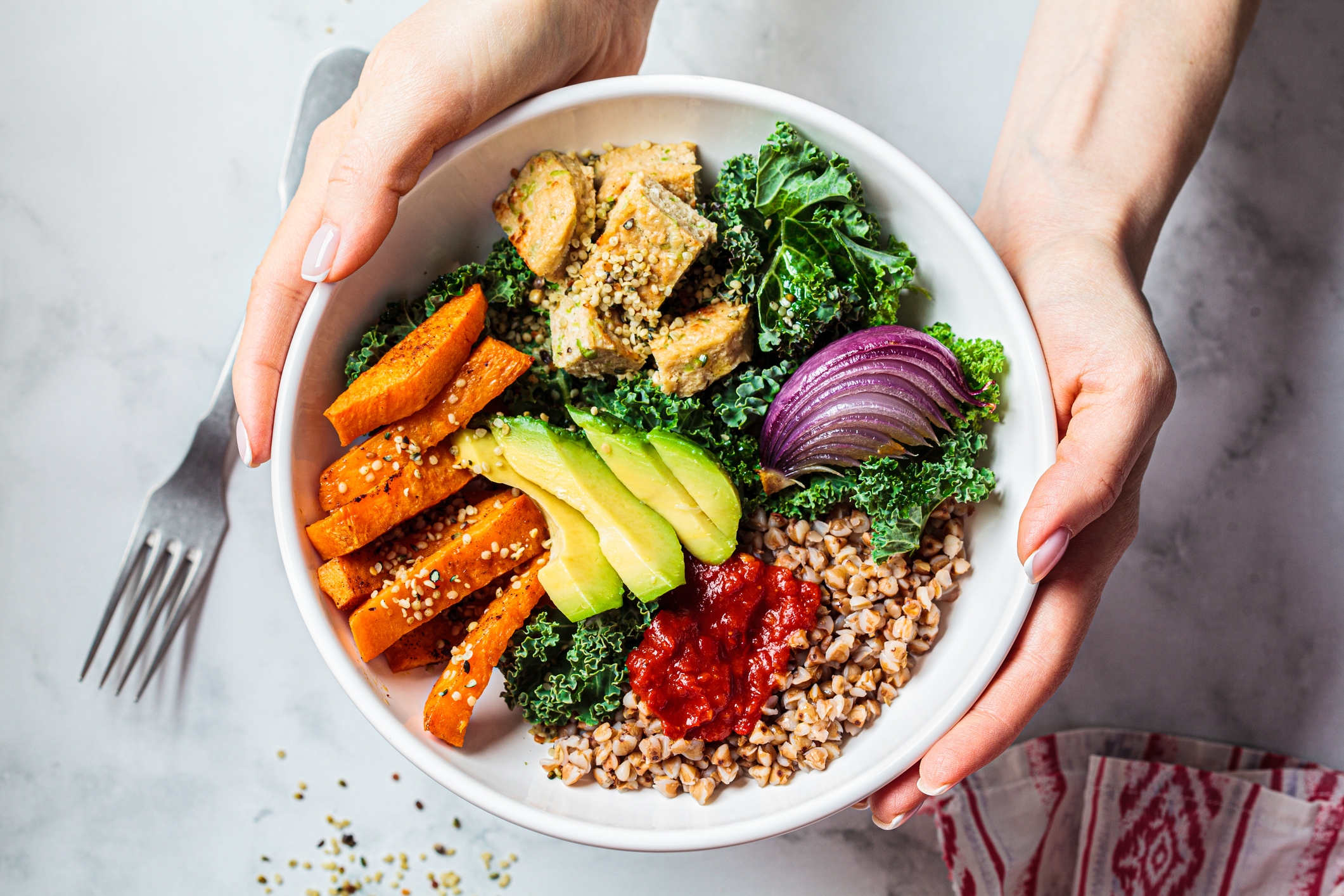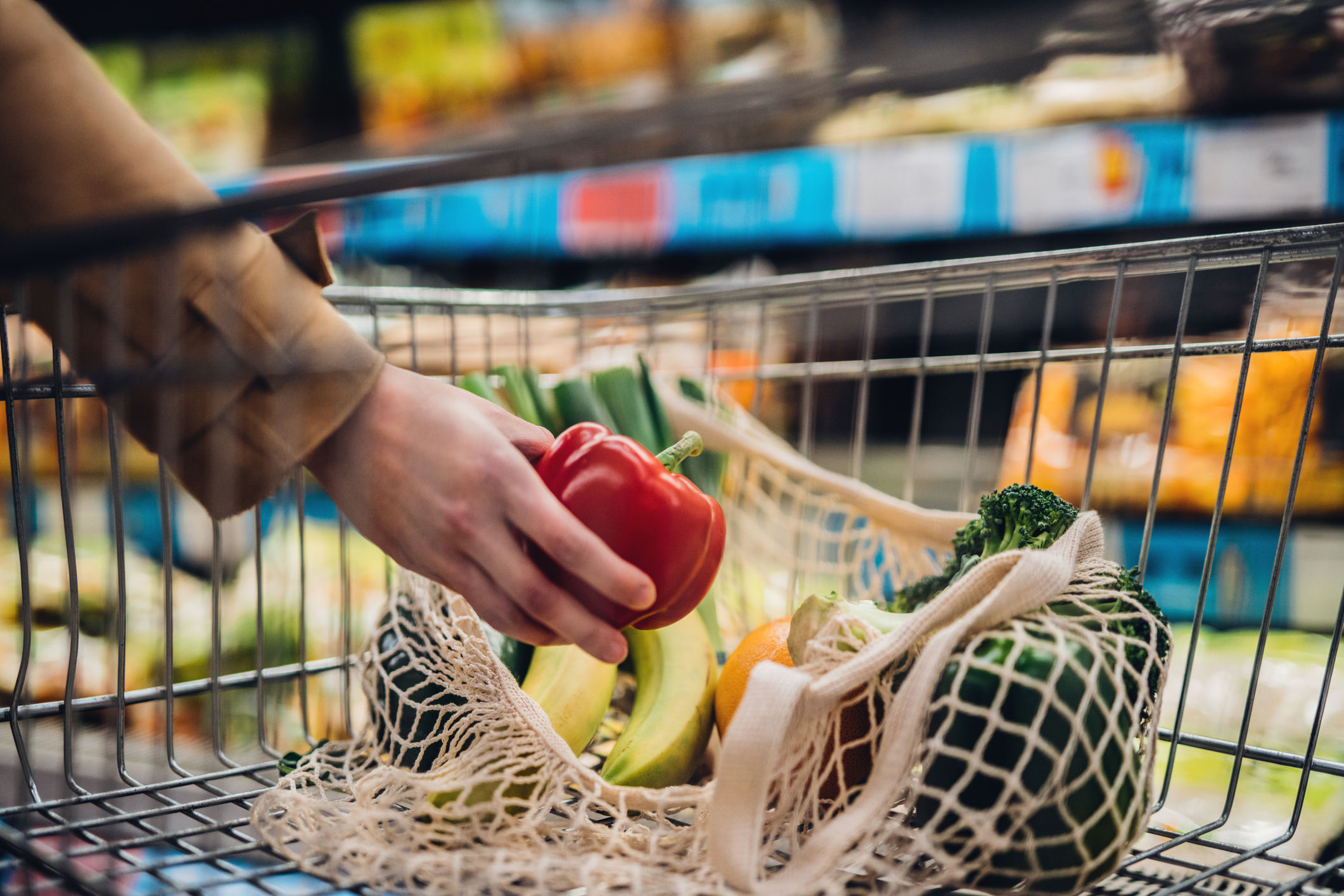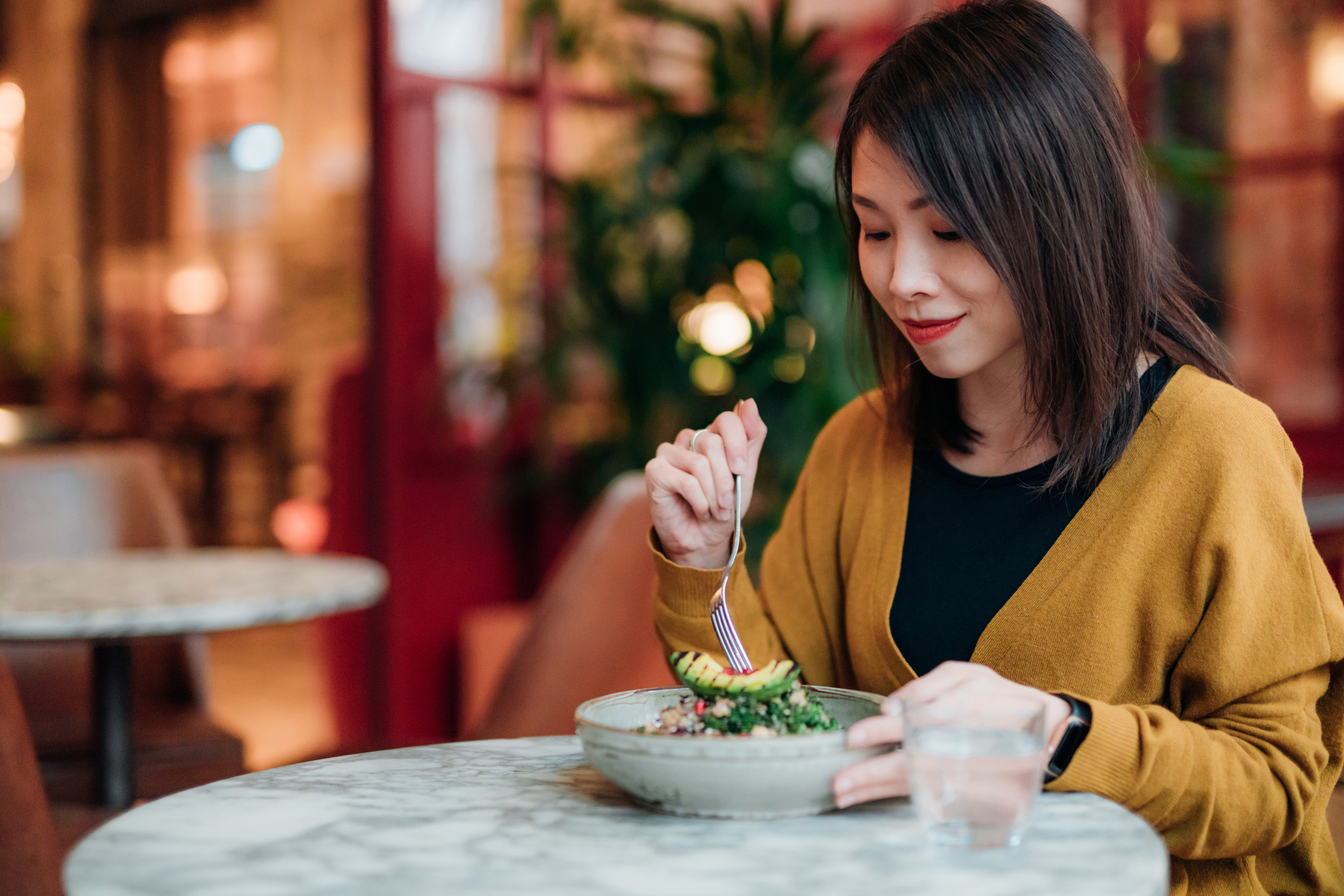
Celebrity news, beauty, fashion advice, and fascinating features, delivered straight to your inbox!
You are now subscribed
Your newsletter sign-up was successful
From the experts.
So, you've nearly completed Veganuary and are toying with the idea of switching to a vegan diet long-term. If you are, know this: it's not the restrictive minefield it's so often made out to be.
If you’re keen to accommodate more plant-based eating within your diet, be prepared to reap the many health benefits that come with the lifestyle. Not to mention that eating sustainably does wonders for the environment, too – as it reduces food waste, the amount of plastic that ends up being dumped in rivers, and other (completely avoidable) environmental calamities.
There are loads of celebrity vegans including Beyoncé and Lizzo. So, we've spoken to Joanna Saad, head of nutrition at Jimmy Joy and Aly Findlay, nutritionist at allplants, to provide a few simple steps that'll help you transition to a vegan diet full time.
Vegan diet: 8 tips for switching to a more sustainable diet
1. Start with small changes
Transitioning into a more sustainable diet can be intense for the regular meat-eater, so start by trying one plant-based meal a day instead of making unrealistic, drastic changes, recommends Saad.
"This will help you stick to it - slower transitions and smaller changes will be better for your body and make it easier for you to become more accustomed rather than making bigger unattainable changes," she explains.
Try this: most cereals are plant-based, you'll just need to switch out your dairy milk for almond, oat, or other alternatives.
Celebrity news, beauty, fashion advice, and fascinating features, delivered straight to your inbox!
2. Eat lots of fruit and vegetables
Sure, this is an obvious one, but as Findlay shares, eating the rainbow is the easiest way to make sure you're getting the right nutrients.
“It’s absolutely possible to get all of the nutrients your body needs in order to stay energised and healthy from a vegan diet," she shares. "My top tip is to enjoy fruit and vegetables in full colour – the variety of colours will help tick off a number of your daily required vitamins and minerals. In doing this, you’ll likely have your intake of vitamins A, C, E and K all covered.”
Don't miss our expert explainers on vitamin D food, vitamin D recipes, and the link between coronavirus and Vitamin D.

3. Don't worry too much about protein
As with any diet, you have to be mindful of what nutrients you’re consuming, share the experts.
"However, there's often a misconception that going plant-based will result in a deficiency in protein," explains Saad. "There are many rich plant-based sources you can include in your diet to get all you need."
If you exercise regularly, you can also up your protein intake with a supplement. Read our guide to the best protein powders, here.
4. Hone in on your micronutrient consumption
Don't worry too much about your protein, but do keep an eye on your micronutrients intake - that's vitamin B12, vitamin D, and iron. Try the following tips for upping your intake.
- Vitamin B12: Easiest to find in marmite and nutritional yeast.
- Iron: There are loads of plant-based iron in foods like chickpeas, tofu, lentils and dark leafy greens.
- Vitamin D: Normally found in oily fish, red meat, eggs, and fortified foods, it's hard to get as a vegan, so Saad would recommend taking a supplement - especially in the winter months when sun exposure is limited.
5. Don't go full turkey
Know this: if you're going plant-based, there's no need to go full cold turkey. "Instead, ease yourself into it by incorporating a few dishes a week and swapping in some dairy alternatives," shares Findlay.
That way, you'll give yourself time to learn about all the different varieties of foods you can eat, without feeling like you’re depriving yourself of your favourites, the expert explains.

6. Change your mindset
Instead of beginning your transition into a vegan diet with an "I can't eat approach," try and focus on the positive aspects of the change you're taking on.
For example, think of how beneficial the things that you're eating are for your health and the planet. "Educating yourself around the topic of plant-based foods is important as you would be surprised at how many alternative yet delicious options are out there," shares Findlay. Plus, equipping yourself with this knowledge will benefit you in the long-term, especially when sticking to the diet.
7. Plan your meals
Meal planning is one of the simplest ways to help you stick to any diet or new lifestyle.
"If you prepare your weekly meals in advance, you can plan your shopping accordingly and are more likely to stick to your sustainable diet rather than succumbing to the temptation of breaking it," recommends Findlay.
8. Make small swaps
As above, it's the small swaps that make all the difference - like swapping your usual dairy milk for an almond or oat milk, or chicken for tofu. "Almond milk is rich in healthy nutrients, coconut milk which is fantastic when it comes to cooking, and there are many other options such as oat milk, cashew milk, hazelnut milk, and soymilk," she goes on.
If you're keen to read about the link between a vegan diet and weight loss, don't miss our guide.

Ally is Marie Claire UK's Senior Health and Sustainability Editor, a well-regarded wellness expert, ten-time marathoner, and Boston Qualifying runner.
Utilising her impressive skillset and exceptional quality of writing, she pens investigative, review and first-person pieces that consistently demonstrate flair and originality.
As well as writing, Ally manages a team of freelancers, oversees all commissioning and strategy for her pillars, and spearheads the brand's annual Women in Sport covers, interviewing and shooting the likes of Mary Earps, Millie Bright, and Ilona Maher. Shortlisted for three BSMEs and winning one in 2022, Ally lives and breathes her verticals: her eye for a story and connections within the wellness sphere are unrivalled. Follow Ally on Instagram for more.
